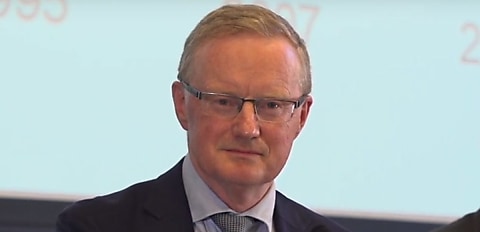Australians who took out mortgages in the belief that interest rates wouldn’t rise until 2024, and who are now faced with [several] months of potentially more interest rate rises, have received an apology, of sorts, from Reserve Bank of Australia (RBA) governor Philip Lowe.
Fronting, for his first time, the Senate Economics Legislation Committee (Additional Budget Estimates) meeting in Canberra on Monday (28 November), Mr Lowe give a frank apology for the central bank’s ‘caveated’ forward guidance that may have been interpreted by borrowers at the time that it was unlikely rates would rise until 2024.
The ’regret’ came though in the context the forward guidance ‘at the time’ was fashioned around various domestic issues - namely the COVID response and “huge amount” of stimulus injected into the economy.
Asked by Tasmanian senator Nick McKim if the governor’s media-reported statement at the time – granted it was caveated - had the effect of inducing many Australians to take out mortgages in the belief that interest rates wouldn’t rise until 2024, and were those affected borrowers deserving an apology, Mr Lowe replied: “Well, I’m certainly sorry if people listened to what we’d said and then acted on what we'd said and now regret what they had done. So that's regrettable.”
“I'm sorry that that happened - but if I can just take you back to the situation we were facing in 2020 and 2021…,” governor Lowe remined.
“It was … dire. The country was in a dire situation. And the Reserve Bank, we wanted to do everything we could to help the country get through that.
“We also had a strong insurance mindset. We were thinking, ‘well, what could go wrong here?’ And the thing that could wrong was really, really bad.
“We're talking about 15 per cent unemployment, a generation of young kids not being able to find jobs. People not being able to go to school and university - it was, was dire times,” he explained.
Mr Lowe said the RBA board decided it would do everything it could to help, which included the term funding facility and the bond purchase program [among other strategies].
“We also thought that given the dire outlook it was unlikely that inflation would pick up quickly and we would want to send a message that interest rates were going to stay low for a long period of time.
“At the time, I thought that was the right thing to do.
“Exposed? The economy recovered much more quickly than anyone expected and we've had to raise interest rates more quickly and people have borrowed in those two years are now finding it much more difficult, but … I'm sorry that people listened to what we'd said and acted on that and now find themselves in a position they don't want to be in,” he conceded.
He re-iterated that the time the RBA board thought it was “the right thing to do”.
“And I think, looking back, [we] would have chosen different language.
“You’re right,” he agreed, “people did not hear the caveats in what we said; my language was always caveated.
“I thought it was clear, but from the central bank kind of perspective - but the community didn’t think it was clear…
“That's a failure on our part,” he acknowledged.
“We didn't communicate the caveats clearly enough, and we've certainly learned from that - and if you've had a look at the review for forward guidance we're changing our approach,” he explained.
“We didn't get across the caveats clearly enough – and the community [just] heard 2024! They didn't hear the conditionality. That's partly our fault,” he said.
“We weren't clear enough, I agree.”
A change from forward guidance
Senator McKim raised the issue at first by reminding Mr Lowe about the ‘change’ perceived from RBA forward guidance issued in February 2021 and the ensuing rollout of increased cash rates soon after from May.
Citing that he was aware of the central bank review into forward guidance and lessons the RBA is learning from it, senator McKim asked: “In February 2021 you did say that the board would not increase the cash rate until actual inflation is sustainably within the 2-3 per cent target range, and that for this to occur wages growth will have to be materially higher than it is currently. Do you accept that those conditions actually have not been met?”
Mr Lowe answered: “No, I don’t accept that at all. I mean, if I could just take you back to our thinking…”
“We were very clear that we were going to wait until we saw the evidence that inflation had picked up before we increased interest rates, so we wanted people to understand that.
“And then rightly people we saying ‘well, what would you require to see to conclude that inflation was sustainable in that 2-3 per cent range?’
“And our thinking was that we would need to see wages growth picking up from the low rate of 2 per cent because we’d had four or five years where wages were growing at 2 per cent and that clearly wasn’t enough to deliver inflation of 2.5 per cent; we wanted to see wages growth pick up close to at least 3 per cent.
“If we were going to deliver an average inflation rate of 2.5 per cent then I think wages on average have to grow at least 3 [per cent]. And in early 2021 that was not the case.
“It was only in the first part of this year that it became evident to us that wages growth was picking up and we were confident that it would average at least 3 per cent over the course of this year.
“By the time those conditions were met – April, May this year – we raised interest rates then.”
[Related: RBA policy path forecasts ‘not for publication’]
